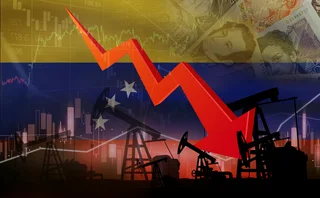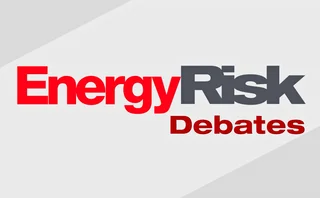Energy Risk Software Rankings 2023: managing uncertainty
Unpredictable markets make CTRM software choices key

Click here to view the full tables
Change and uncertainty are nothing new for commodity risk managers and traders, but the scale of change over the past year has challenged even the most seasoned market participants, making their technology choices more significant than ever.
Russia’s invasion of Ukraine in February last year changed geopolitical norms and upended well-established market structures, such as trade routes, supply chains and even price formation. As governments and regulators around the world stepped in to cap retail energy prices, further complexity was added to modelling risk.
Additionally, traditional market models are struggling in today’s macroeconomic environment of soaring inflation, rising interest rates and increased risk. Hedging has become more expensive and market volatility has led to some huge spikes in margin calls.
To have the best prospects amid such uncertainty, it’s more important than ever for market participants to have clear visibility and a proper understanding of their positions and risk exposures. They also need the tools to manage and mitigate their exposures.
Having a robust commodities trading and risk management (CTRM) software system is essential in today’s volatile market for dealing with position management, market and credit risk, as is having cutting-edge tools to manage physical risk, scheduling and logistics.
Energy Risk’s annual Software Rankings survey shows which CTRM and enterprise risk software systems were considered the most proficient across a variety of different areas in the commodities landscape during 2022. In the survey – now in its 18th year – participants vote for their preferred software vendors and applications, data providers, data management firms and implementation specialists. The poll covers CTRM and enterprise risk systems, trading platforms, data firms and implementation specialists.
Click on the link above to see the Software Rankings results for 2023.
Methodology
The survey went live on October 19, 2022 and closed on November 21, 2022. It received 220 valid responses. To compile the Software Rankings, respondents were asked to vote for their preferred software vendor, data management firm, data provider and technology adviser, in a variety of categories. All votes were carefully checked, and invalid votes stripped out. Examples of votes considered invalid are people voting for their own firm or using a free, internet-based email address, multiple votes from the same person or IP address, and voters who choose the same firm indiscriminately throughout the survey.
Following closure of the poll, the results are subject to an internal review process, which can result in categories being dropped if they do not have enough votes. The outcome of the review is final.
More on Risk management
Energy firms revisit CTRM systems as tech advances
Energy executives mull how to tap into the explosion of new technologies entering the risk space, but systems selection must consider future business needs, writes Yefreed Ditta at Value Creed
CRO interview: Brett Humphreys
Brett Humphreys is head of risk management at environmental markets specialist Karbone. He talks to Energy Risk about the challenges of modelling outcomes in unpredictable times and how he’s approaching the risks at the top of his risk register
How geopolitical risk turned into a systemic stress test
Conflict over resources is reshaping markets in a way that goes beyond occasional risk premia
Energy Risk Debates: the influence of risk culture
The panellists examine different risk cultures and discuss the risk manager’s role and influence in creating a risk culture
Energy Risk reaction: Venezuela and oil sanctions
Energy Risk talks to Rob McLeod at Hartree Partners about the energy risk implications of the US’s control of Venezuelan oil
CRO interview: Shawnie McBride
NRG’s chief risk officer Shawnie McBride discusses the challenges of increasingly interconnected risks, fostering a risk culture and her most useful working habits
Increasingly interconnected risks require unified risk management
Operational risk is on the rise according to a Moody's survey, making unified risk management vital, say Sapna Amlani and Stephen Golliker
Energy Risk Europe Leaders’ Network: geopolitical risk
Energy Risk’s European Leaders’ Network had its first meeting in November to discuss the risks posed to energy firms by recent geopolitical developments







